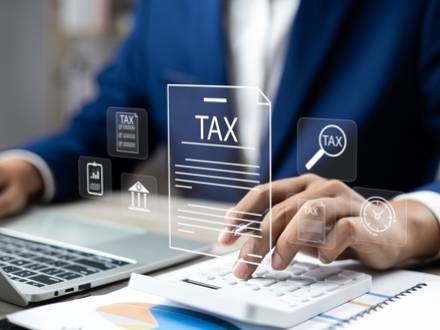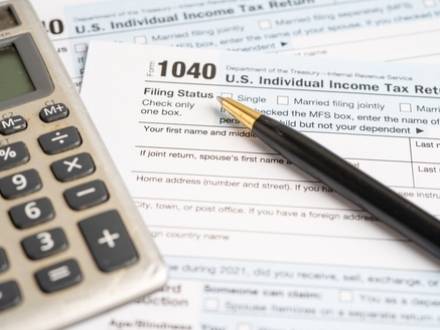Recent Blog Posts
When Will the IRS Silent Lien Apply to Federal Tax Debts?
 When the IRS determines that a taxpayer has a tax debt, it may use multiple different methods to collect the amount owed. The claim that the IRS has against a taxpayer’s assets is known as a silent lien, and it could lead to collection actions taken by the IRS to satisfy the debt. For taxpayers with tax debts, it is important to understand when the IRS silent lien will apply, when a tax lien may become public, and what effects liens will have.
When the IRS determines that a taxpayer has a tax debt, it may use multiple different methods to collect the amount owed. The claim that the IRS has against a taxpayer’s assets is known as a silent lien, and it could lead to collection actions taken by the IRS to satisfy the debt. For taxpayers with tax debts, it is important to understand when the IRS silent lien will apply, when a tax lien may become public, and what effects liens will have.
An attorney with experience addressing issues related to tax law can provide guidance on how to address silent liens and other issues related to tax debts. With legal representation, taxpayers can determine what steps they can take to reduce the amount they may be required to pay or have liens lifted before they can affect their credit or cause other financial issues.
How Does U.S. Residency Affect Income Taxes and Transfer Taxes?
 Citizens of the United States have a number of tax obligations. Residents of the United States who are not citizens also have a number of tax obligations, but in some cases, confusion may arise regarding whether a non-U.S. citizen is considered to be a resident for tax purposes. The way residency is determined is different for income taxes than for transfer taxes, which include gift taxes and estate taxes. It is crucial to understand these differences so that taxes are correctly paid while avoiding penalties imposed by the IRS.
Citizens of the United States have a number of tax obligations. Residents of the United States who are not citizens also have a number of tax obligations, but in some cases, confusion may arise regarding whether a non-U.S. citizen is considered to be a resident for tax purposes. The way residency is determined is different for income taxes than for transfer taxes, which include gift taxes and estate taxes. It is crucial to understand these differences so that taxes are correctly paid while avoiding penalties imposed by the IRS.
Because of the complexity of U.S. tax laws, foreign citizens who spend time in the United States or own property in the United States can easily become involved in tax disputes that could lead to penalties or even criminal charges for tax evasion. Working with an attorney who has a strong understanding of the applicable U.S. tax laws can ensure that the right approach is taken when filing tax returns and when responding to IRS queries or tax audits and resolving tax disputes.
What Tax Concerns Need to Be Addressed When Starting a Business?
 Starting a new business can be exciting, but it can also be very complicated. Owners of small businesses and other types of companies will need to address a variety of complex financial and legal issues, including those related to federal and state taxes. From selecting a business structure to understanding state-specific tax obligations in California, there are several crucial steps that a new business owner must take. An experienced attorney can provide guidance in these situations, helping business owners meet their legal requirements and avoid costly mistakes.
Starting a new business can be exciting, but it can also be very complicated. Owners of small businesses and other types of companies will need to address a variety of complex financial and legal issues, including those related to federal and state taxes. From selecting a business structure to understanding state-specific tax obligations in California, there are several crucial steps that a new business owner must take. An experienced attorney can provide guidance in these situations, helping business owners meet their legal requirements and avoid costly mistakes.
Choosing a Business Structure
During the business formation process, an owner will need to determine how their business will be structured. The type of business entity will determine how the business will be taxed and how profits and losses will be reported, and it can also affect a business owner’s personal liability. Common structures include:
How Will the No Tax on Tips Act Affect Employers?
 During the 2024 presidential campaign, Donald Trump promised to eliminate taxes on the tips earned by certain workers, such as restaurant servers or hair stylists. Since Trump assumed office for his second presidential term, Congress has taken steps to fulfill this promise. If new laws are passed eliminating taxes on tips, this may affect both employees who earn tips and employers who are required to withhold payroll taxes.
During the 2024 presidential campaign, Donald Trump promised to eliminate taxes on the tips earned by certain workers, such as restaurant servers or hair stylists. Since Trump assumed office for his second presidential term, Congress has taken steps to fulfill this promise. If new laws are passed eliminating taxes on tips, this may affect both employees who earn tips and employers who are required to withhold payroll taxes.
Understanding how changes to the law may affect employment taxes will be important for small businesses and other employers. Small business owners and other employers can consult with a tax attorney to make sure they are meeting their legal requirements and will be taking the correct steps to avoid potential penalties or other tax consequences.
Tax Reform Bill May Affect Employee Retention Tax Credit Claims
 For many businesses in the United States, keeping up with changes to tax laws can be a complex matter. Different types of tax credits may be available to certain taxpayers, but claiming improper credits could lead to penalties. One issue that has gained attention recently is the Employee Retention Tax Credit (ERTC). A proposed change to the law may affect businesses that have outstanding ERTC claims, and it may also increase the window of time in which the IRS can perform tax audits related to these claims.
For many businesses in the United States, keeping up with changes to tax laws can be a complex matter. Different types of tax credits may be available to certain taxpayers, but claiming improper credits could lead to penalties. One issue that has gained attention recently is the Employee Retention Tax Credit (ERTC). A proposed change to the law may affect businesses that have outstanding ERTC claims, and it may also increase the window of time in which the IRS can perform tax audits related to these claims.
Because of the changes that may be made to tax laws, businesses and other taxpayers may need legal help as they determine how to respond to IRS audits, whether they are eligible for certain credits, and how they can avoid or minimize penalties. A skilled attorney who has a strong understanding of these laws can provide guidance and legal representation, working to ensure that taxpayers can minimize their tax burdens.
Can I Avoid a California Property Tax Reassessment When Transferring Ownership?
 For homeowners and other property owners in California, property taxes can be a significant issue. Because these taxes can be high, property owners will need to understand what steps they can take to minimize the amounts that they may be required to pay. In 1978, the California Constitution was changed by what is known as Proposition 13 (commonly called "Prop 13), which has helped many property owners avoid substantial increases in property taxes since it limits the amount that property taxes can increase each year. However when ownership of real property is transferred, such as when someone sells their home, this will typically trigger a reassessment of property taxes, and the new owner will be required to pay property taxes based on the property’s current fair market value.
For homeowners and other property owners in California, property taxes can be a significant issue. Because these taxes can be high, property owners will need to understand what steps they can take to minimize the amounts that they may be required to pay. In 1978, the California Constitution was changed by what is known as Proposition 13 (commonly called "Prop 13), which has helped many property owners avoid substantial increases in property taxes since it limits the amount that property taxes can increase each year. However when ownership of real property is transferred, such as when someone sells their home, this will typically trigger a reassessment of property taxes, and the new owner will be required to pay property taxes based on the property’s current fair market value.
There are some situations where property owners may be able to avoid a reassessment when transferring ownership of real property. NOTE: The laws have changed in recent years, and homeowners and other property owners will need to meet specific requirements to receive exclusions from reassessment requirements. An attorney who understands the laws that apply in these situations can provide guidance to help ensure that property taxes can be minimized.
What Is the Difference Between a Small Case Request and a Formal Protest in an IRS Appeal?
 There are many reasons why taxpayers may wish to appeal the decisions made by the IRS. After conducting a tax audit, the IRS may determine that taxes and penalties are owed, but the taxpayer may believe that these assessments are incorrect. As well, the IRS may reject a claim for a refund or tax credit, but the taxpayer may believe that they qualify for these tax benefits. Appeals may also address a variety of other tax-related issues, and specific procedures must be followed in these cases.
There are many reasons why taxpayers may wish to appeal the decisions made by the IRS. After conducting a tax audit, the IRS may determine that taxes and penalties are owed, but the taxpayer may believe that these assessments are incorrect. As well, the IRS may reject a claim for a refund or tax credit, but the taxpayer may believe that they qualify for these tax benefits. Appeals may also address a variety of other tax-related issues, and specific procedures must be followed in these cases.
Because of the complex laws surrounding tax appeals, it is crucial to work with an experienced attorney when addressing these issues. A lawyer with a strong understanding of tax law can help taxpayers understand their options and provide effective representation when interacting with the IRS or pursuing appeals in U.S. Tax Court, U.S. district courts, or the U.S. Court of Federal Claims.
When Can a Small Business Be Audited by the IRS or the State of California?
 Operating a small business in California can be rewarding, but business owners will need to make sure they comply with a complex web of federal and state tax regulations. One of the most stressful challenges a business owner may face is a tax audit. These audits may be conducted by the Internal Revenue Service (IRS) or California tax agencies, and they may be part of routine reviews or potential concerns about violations of tax laws. Legal help from an experienced attorney can be invaluable in these situations, and it can help ensure that small businesses will be able to navigate audits effectively while reducing the risk of penalties.
Operating a small business in California can be rewarding, but business owners will need to make sure they comply with a complex web of federal and state tax regulations. One of the most stressful challenges a business owner may face is a tax audit. These audits may be conducted by the Internal Revenue Service (IRS) or California tax agencies, and they may be part of routine reviews or potential concerns about violations of tax laws. Legal help from an experienced attorney can be invaluable in these situations, and it can help ensure that small businesses will be able to navigate audits effectively while reducing the risk of penalties.
IRS Audits: What Triggers Federal Tax Scrutiny?
The IRS may conduct audits to verify the accuracy of a business's tax returns and ensure that it is maintaining compliance with federal tax laws. Small businesses can be selected for an audit for several reasons, including:
Will the Tax Cuts and Jobs Act Be Extended?
 In 2017, during Donald Trump’s first presidential term, Congress passed the Tax Cuts and Jobs Act (TCJA), which put in place a number of significant changes that affected both individual taxpayers and businesses. However many of the provisions in this law were temporary, and they are set to expire at the end of 2025. Congress is now considering whether a new law may be passed to extend some of the terms or make other changes to tax laws. In order to do so, Congress will likely need to make large cuts to the government’s budget, so the ultimate decisions that will be made are uncertain.
In 2017, during Donald Trump’s first presidential term, Congress passed the Tax Cuts and Jobs Act (TCJA), which put in place a number of significant changes that affected both individual taxpayers and businesses. However many of the provisions in this law were temporary, and they are set to expire at the end of 2025. Congress is now considering whether a new law may be passed to extend some of the terms or make other changes to tax laws. In order to do so, Congress will likely need to make large cuts to the government’s budget, so the ultimate decisions that will be made are uncertain.
Since the path that Congress will take is currently unknown, many taxpayers are facing uncertainty about whether their taxes may increase, whether certain tax credits or deductions will be available, and what they can do to minimize their tax burdens. Because of this uncertainty, it is more important than ever to work with a skilled attorney to address tax-related issues and determine the best course of action.
How Can Taxpayers Request Payment Plans and Offers in Compromise?
 When people fall behind on their tax obligations, the consequences can be serious. The IRS may impose penalties, add interest to unpaid amounts, and even initiate collection actions such as wage garnishments, tax liens, or bank levies. For many taxpayers, paying off a large tax debt in one lump sum is simply not possible. Fortunately, the IRS offers several options to help taxpayers manage their debts, including payment plans and offers in compromise. A California tax attorney who has extensive experience in tax law can help taxpayers explore these options and present a strong case for reducing or managing their tax burdens.
When people fall behind on their tax obligations, the consequences can be serious. The IRS may impose penalties, add interest to unpaid amounts, and even initiate collection actions such as wage garnishments, tax liens, or bank levies. For many taxpayers, paying off a large tax debt in one lump sum is simply not possible. Fortunately, the IRS offers several options to help taxpayers manage their debts, including payment plans and offers in compromise. A California tax attorney who has extensive experience in tax law can help taxpayers explore these options and present a strong case for reducing or managing their tax burdens.
Applying for an IRS Payment Plan
A payment plan, which is also known as an installment agreement, allows a taxpayer to pay off debt over time through monthly payments. There are several types of installment agreements based on the amount owed and the taxpayer’s financial situation:









